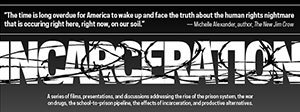“What people fail to grasp is that the issues against which African-Americans railed in 1963 were just as invisible to some of us back then as the issues of 2013 are to some of us right now. They did not see the evil of police brutality in ’63 any more than some of us can see the evil of mass incarceration now.” — Leonard Pitts Jr., Miami Herald, Aug. 27
1963 was a pivotal year in this country’s civil rights movement. In April of that year, Dr. Martin Luther King Jr. wrote “Letter from Birmingham Jail.” On June 12, civil rights activist Medgar Evers was assassinated. On Aug. 28, 50 years ago Wednesday, King delivered his “I Have a Dream” speech. And on Sept. 15, the Ku Klux Klan bombed the Sixteenth Street Baptist Church in Birmingham, Ala., killing four young girls.
Fifty years past that tumultuous time, there is growing recognition of a significant civil rights challenge in our midst: hyper-incarceration, which disproportionately targets minorities.
In response, the University of Notre Dame’s Center for Social Concerns has announced a new fall Social Concerns Seminar titled “Hyper-Incarceration” and will launch a yearlong series of events in collaboration with other campus units focused on the issue of incarceration. This series will include documentaries, lectures and opportunities for dialogue about the rise of the prison system, the war on drugs, the school-to-prison pipeline, the effects of incarceration (on the incarcerated, their families and their communities) and productive alternatives. Speakers and panels will comment further on issues addressed by the documentaries and lectures, and related discussions will bring students and community members together to explore themes and consider implications.
According to Susan Sharpe, a member of the Center for Social Concerns staff who focuses on restorative justice, “We want to raise awareness of hyper-incarceration and its effects. But awareness is not enough. It is important also to think critically about the practice of incarcerating massive numbers of black and brown people, and about the values and systems that practice reflects. We need to examine how we are responding to wrongdoing — both in our own choices as community members and in what we ask our institutions to do in our names. We need to ask whether and how we might be using criminal justice policy to preserve white privilege.”
Rosie McDowell, chair of the Center’s Justice Education Committee, explained, “The goal is to promote critical thinking about crime and about criminal justice policy and offer Catholic Social Teaching as another lens through which to consider these issues so that together we foster responses based on the principles of dignity and justice.”
The series will kick off at 7 p.m. Sept. 9 (Monday) at the Annenberg Auditorium in the Snite Museum of Art, with a lecture by Wilson Fallin Jr., professor of history, University of Montevallo, titled “Spirituality, Birmingham Bombing and Birmingham Civil Rights Movement.”
For a complete listing of events, visit bit.ly/CSC-Incarceration.
Originally published by at news.nd.edu on August 28, 2013.
